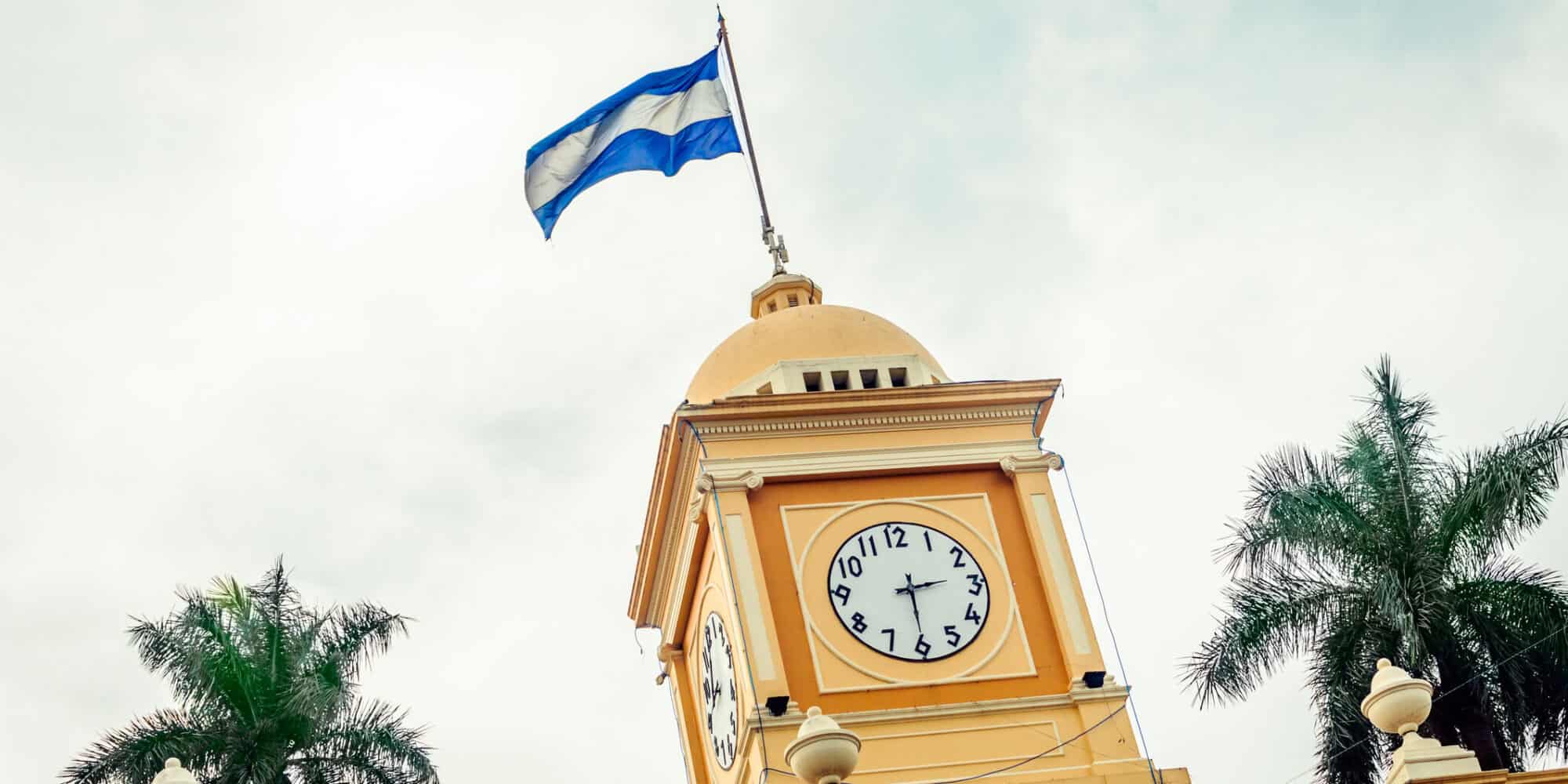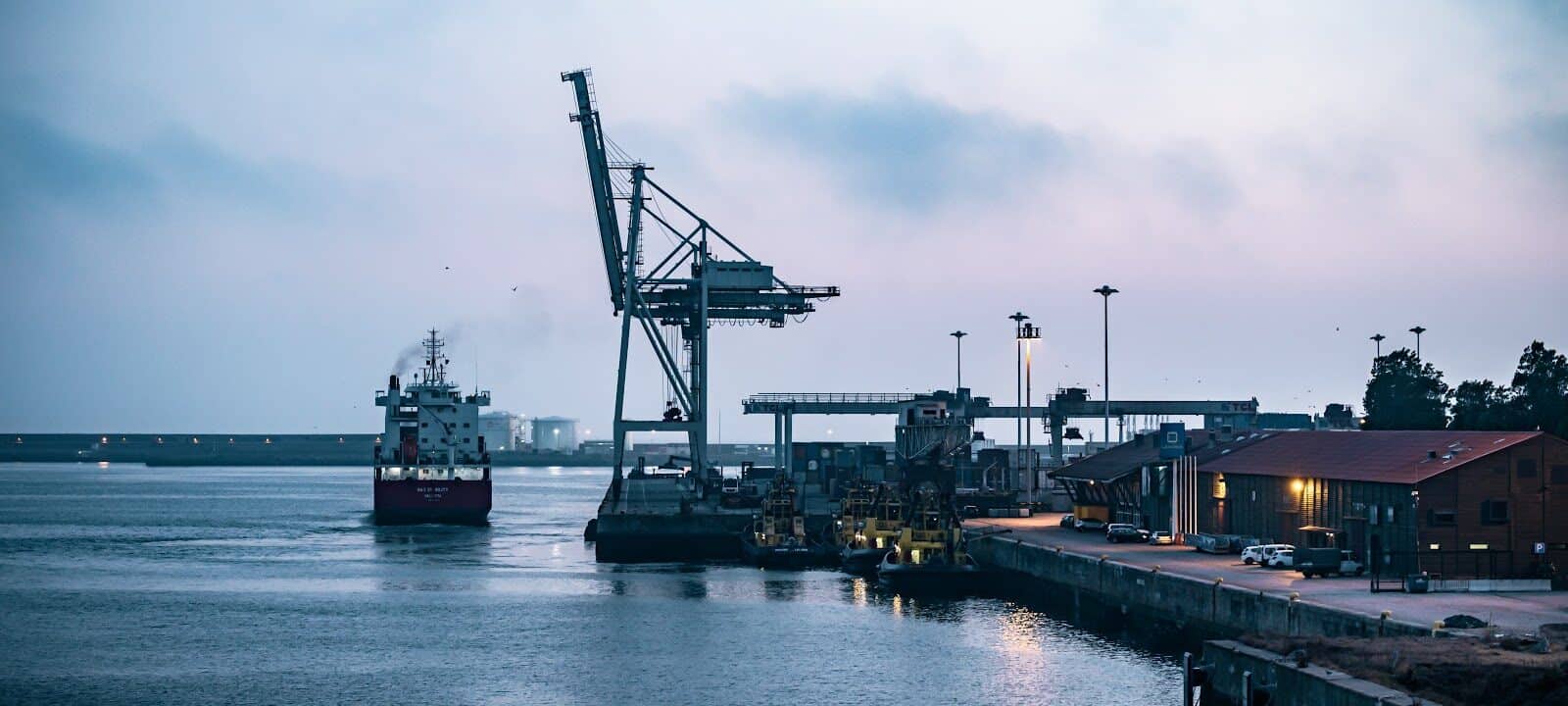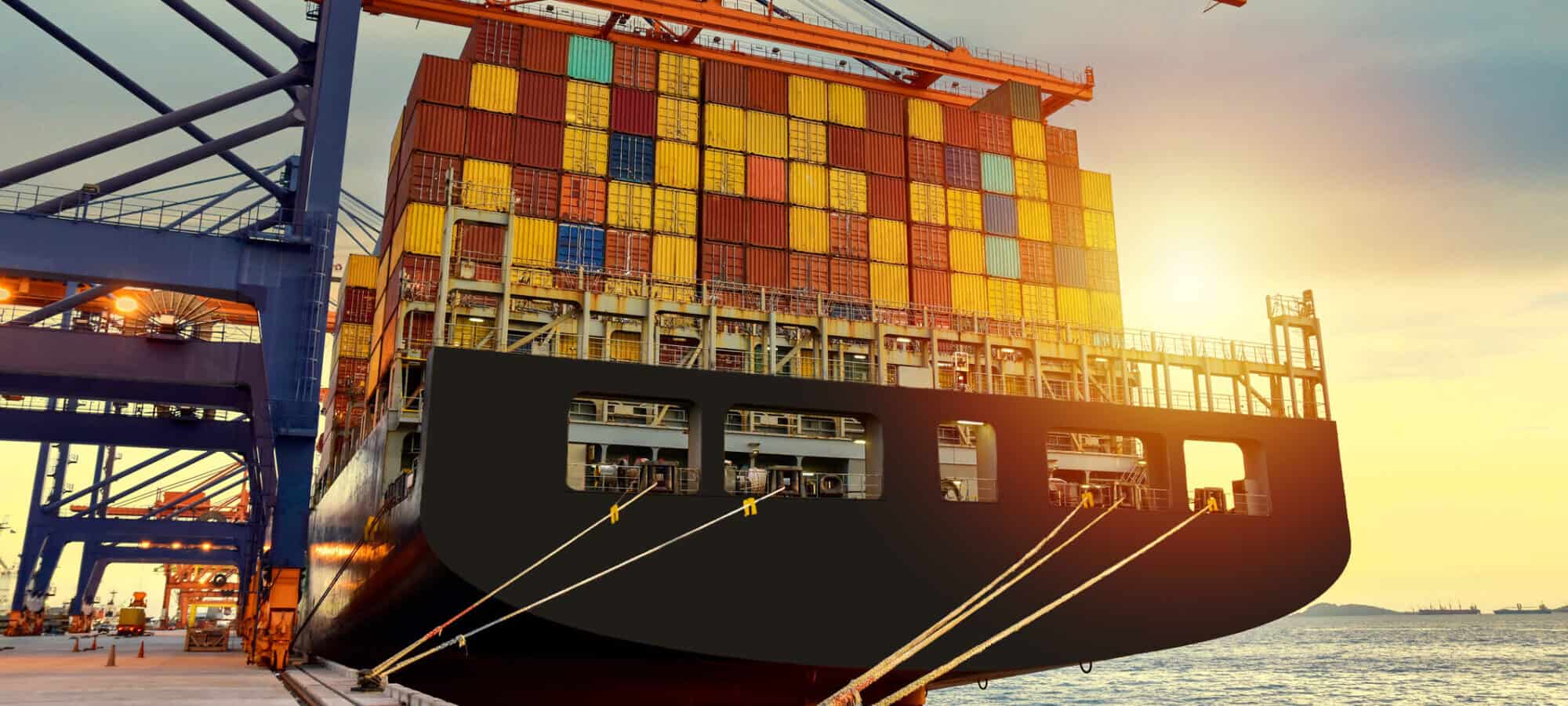Are you thinking about exporting your products to The Bahamas? One of the wealthiest countries in the Caribbean is just a 45-minute flight from Miami.
As an English-speaking country with close political, economic, business, and cultural ties to the United States, The Bahamas could be the perfect next step in expanding your business.
Let Latin American Cargo handle your export to the Bahamas for you so you don’t have to worry about it. Take a look at our comprehensive guide and we will take care of the rest!
Business opportunities to consider when exporting to The Bahamas
Why The Bahamas is attractive to North American and European exporters?
There are several reasons why exporters find the Bahamas to be one of the most attractive countries in the Caribbean:
- An archipelago of 700 islands and islets, the Bahamas attracts millions of tourists each year, drawn to its picture-perfect beaches, luxury resorts, desirable climate, and breathtaking forests.
- After tourism, financial services is the largest contributor to Gross Domestic Product (GDP). Since the Bahamas is a tax haven (no income tax, corporate tax, capital gains tax, or wealth tax to pay) and offshore banking centre, its people enjoy one of the highest living standards in the region and powerful purchasing power
- The Bahamas’ economy is significantly boosted by regular flights and sea services with the United States. U.S. travellers can benefit from speedier, more straightforward journeys thanks to a customs and border pre-clearance facility at the country’s main airport. In addition, U.S. taxpayers can deduct expenses incurred while doing business in The Bahamas.
However, the government does have to get revenue somehow, and much of it comes from product-related tariffs and taxes – amongst the highest in the Western Hemisphere. So, you will need to factor these into your financial planning before leaping into this potentially lucrative new market.
The Bahamas’ Free Trade Agreements
The Bahamas is the only country in the region without a free trade agreement or customs union.
There are currently no free trade agreements between any North American countries and the Bahamas. However, considering that all consumer goods, and 90% of food products are imported, the consistent high demand may mitigate any negative impacts of not having free-trade agreements.
The Bahamas and North American countries are likely to continue doing business together regardless of the absence of free-trade agreements.
Despite being a member of Caribbean Community and Common Market (CARICOM) since 1983 – established to reduce or remove restrictions on the movement of goods, services, labour, and capital throughout the region –, it does not participate in its single market and economic and customs union. As a result, the Bahamas does not automatically offer preferential tariffs to other CARICOM member countries.
Interestingly, The Bahamas is part of the EU-CARIFORUM Economic Partnership Agreement. It provides the country with full and free access to European member states’ markets. Likewise, The Bahamas will also gradually open its markets to European exporters starting in 2023.
Key sectors for exports to The Bahamas
Tourism and related services account for almost 70% of The Bahamas’ Gross Domestic Product (GDP).
Other areas presenting trade opportunities include:
- Energy efficiency and renewables – The Bahamas aims to source 30% of its energy through renewables by 2030.
- Infrastructure development and reconstruction – Grand Bahama and Abaco still need redevelopment assistance following Hurricane Dorian in 2019. Key areas include construction, utilities management, water treatment, prefabricated materials, capital equipment, and supplies.
- Natural Resources – support is needed to commercially develop limestone mining and forestry as well as aragonite and salt.
- Digital economy – including I.T. services and equipment, data security services, smart technology, medical technology and equipment
- Manufacturing – a free-trade zone in Grand Bahama is home to many U.S. manufacturing businesses, including cement and pharmaceuticals.
- Agriculture and food products – there are opportunities to supply to large hotels and resorts. The Bahamian government is seeking private investment in agriculture and fisheries to boost GDP.
Top exports to The Bahamas
In terms of both imports and exports, the USA is the Bahamas’ most important trading partner. In 2021, the USA exported more than $3 billion worth of goods (84.5% of the Bahamas total imports).
Based on data collected by The Bahamas National Statistical Institute, the top five imported goods into the Bahamas in 2021 were:
- Mineral fuels, lubricants and related materials ($657m)
- Food and live animals ($640m)
- Machinery and transport equipment ($631m)
- Manufactured goods ($480m)
- Miscellaneous manufactured articles ($395m)
Challenges to consider when exporting to The Bahamas
When entering a new market, it is essential to take your time to understand the challenges so you can mitigate them. Challenges in The Bahamas include:
- High shipping costs to some of the less economically active islands.
- High customs tariffs – the highest average duty rate in the Western Hemisphere. However, there has been a reduction in key sectors.
- Non-tariff barriers, including government approval required for investment in certain sectors and seasonal prohibitions on some product imports.
- Lack of quality transport and communication infrastructure on some islands, with all infrastructure susceptible to hurricane damage.
Import restrictions and prohibitions
The Bahamas has an extensive list of imports that are either banned or have certain conditions attached to their entry.
Prohibited imports to the Bahamas include:
- Food intended for but unfit for human consumption
- Indecent or obscene articles, including photographs and books
- Underwater guns, other than the Hawaiian Sling, whereby a projectile may be discharged underwater.
- Any counterfeit currency
Restricted imports to the Bahamas include:
- Firecrackers and impact flash facilities considered dangerous
- Firearms and fireworks, unless with police authorization
- Trailers intended for habitation, offices, or workshops unless with Ministerial authorization
- Mechanical games and devices set in operation wholly and partly by the insertion of a coin or token unless the person or organisation has a valid licence.
- Motor vehicles or motorcycles ten years or older
- Liquid or Liquified Petroleum Gas – a certificate is required to show the product can be transported and stored safely
You may check the complete list of banned and restricted items on the website of The Bahamas Customs & Excise Department and consult a reputable customs broker to determine whether your products require further approvals and documentation.

Freeport Container Port is the main port of The Bahamas and is the ‘transshipment hub of the Americas’.
Export to The Bahamas: Customs clearance
The Bahamas Tariff System can be difficult to understand. While we outline the key facts, we advise consulting a reputable customs broker to fully understand the detail of the duty rates for your products.
Customs Duties
The average duty rate in The Bahamas is around 30 percent. However, tariffs can be up to 65 percent and even 100 percent on imported products considered to be in direct competition with locally produced ones.
The country’s relationship with CARICOM partly explains this. Despite being a signatory to CARICOM, The Bahamas is not part of its economic or customs union, so it does not share the Common External Tariff (CET), nor does it offer preferential or zero import duties from other member countries.
In addition to tariffs, the government introduced a Value-Added-Tax (VAT) on domestically produced and imported goods and services in 2015 to boost government revenue.
Encouragingly, however, tariffs have been lowered or eliminated in certain sectors including construction, agriculture, fisheries, and renewables to incentivize economic activity.
To give you a clearer idea of what you can expect to pay, The Bahamas Customs & Excise Department has a helpful tariff search function on its website.
Import requirements and documentation
Most documents necessary for importing goods to The Bahamas are general shipping requirements. They include:
- Entry forms for goods coming by sea, air, or post
- Proof of authorization for processing
- Proof of the value of the goods (invoices or receipts)
- Proof of freight charges (Bill of Lading or Freight Invoice)
- Customs documentations for declarations
- Agricultural Permit, if required
- Phytosanitary Certificate, if required
- Import permits, if required
Import permits are required for a range of goods:
- Poultry, meats, vegetables, fruits, live plants, and animals from the Ministry of Agriculture, Marine Resources and Family Island Affairs
- Medicines and Pharmaceuticals (Dangerous Drugs) from the Ministry of Health and Wellness
- Slot machines, trailers, and recreational vehicles, from the Ministry of Finance
- Firearms, fireworks, and underwater guns (other than Hawaiian slings spearfishing devices) from the Commissioner of Police
- Precursor and essential chemicals from the Customs and Excise Department
- Motor vehicles with a non-rebuildable title, principally designed for the transport of goods and people, from the Ministry of Finance
- Motor vehicles or motorcycles ten years or older from the Ministry of Finance
It is worth noting that a new electronic system, Click2Clear, has been introduced to simplify and speed up customs processes. You must first register to access it.
As customs regulations and guidance can change, we highly recommend checking The Bahamas Customs & Excise Department website regularly.
In addition to import documentation, make sure your products are labelled correctly. Labels must:
- be in English
- specify the product name
- specify the date of manufacture and expiration
- specify other requirements as prescribed by regulations, including technical regulations
As of now, The Bahamas has 39 national standards for goods, services, practices, and processes. You can find out which may be relevant to your product on the Bahamas Bureau of Quality & Standards website.
Modes of transportation to and within The Bahamas
The Bahamian government recognizes the importance of infrastructure investment to economic success – boosting competitiveness, creating jobs, and attracting investment.
Natural disasters, particularly hurricanes, remain an ongoing threat to any current and future infrastructure investment. Hurricane Dorian caused $50m in damage to transport infrastructure in 2019.
Maritime Facilities
The Bahamas has 10 ports, with the majority serving the lucrative cruise and tourism industry. It also has two container facilities strategically important to the Caribbean and the wider Americas.
Freeport Container Port situated in the southwest of Grand Bahama Island, is the main port of The Bahamas and is the ‘transshipment hub of the Americas’. It is well-connected to major world markets and centrally located at the intersection of major North American, South American, Far Eastern, and European trade routes.
Opening in 1997, it is now the largest and deepest container port in the Caribbean and can handle the world’s largest vessels. Its state-of-the-art technology supports reliable and quick throughput. The port has seen numerous expansion phases and has room to grow further if demand requires. It currently has an annual capacity of around 1.5m TEUs.
Less than half the size of Freeport but still economically critical is Nassau Container Port on the north of the island of New Providence. It handles containers, general bulk, and break-bulk cargo, serving the Caribbean and beyond.
Meanwhile, Nassau’s sub-port, Clifton Point, handles liquid bulk such as petroleum goods and gas, alcohol, and oil.
Airport infrastructure
With more than 40 airports and airstrips, The Bahamas keeps itself well-connected across its mass of islands and beyond. Its two main international airports are Lynden Pindling International Airport (formerly known as Nassau International Airport) in George Town, and Grand Bahama International Airport in Freeport.
Lynden Pindling is the fourth busiest airport in the Caribbean, serving around 4 million passengers in 2019. It is also a key hub for air freight. The last decade has seen it undergo a major overhaul to boost its capacity and facilities. It also offers U.S. Border pre-clearance, allowing all U.S. flights to operate as domestic flights upon arrival at their destination.
Grand Bahama International Airport also offers passenger and freight services. Taking advantage of its proximity to the container port, freight services are to become an increasingly important component of its operations. After Hurricane Dorian damaged the airport badly, the government intends to turn it into an air cargo hub to help finance its reconstruction.
Road infrastructure
The highways in The Bahamas are well-developed with an ongoing program of improvements and upgrades – This is particularly important because The Bahamas is prone to hurricanes, which have caused severe damage to infrastructure in recent years..
Over the past decade, New Providence – the country’s most populated island – has been the focus of much investment. It has seen a road improvement project for major corridors and intersections to reduce congestion and the creation of a dual-lane highway from Lynden Pindling International Airport into downtown Nassau.
A second bridge has been built between Nassau and Paradise Island. Major road construction has also been completed on the Family Islands.
Rail transport
The Bahamas no longer has a functioning rail network. However, the remnants of those historically used to serve the salt and logging industries can be seen on some islands, including Grand Bahama.
Export to The Bahamas now!
Does The Bahamas sound like the perfect market for you?
Let Latin American Cargo advise you on the best shipping options to The Bahamas to get your products where they need to go quickly and efficiently. Get in touch today!


 LAC Team
LAC Team


